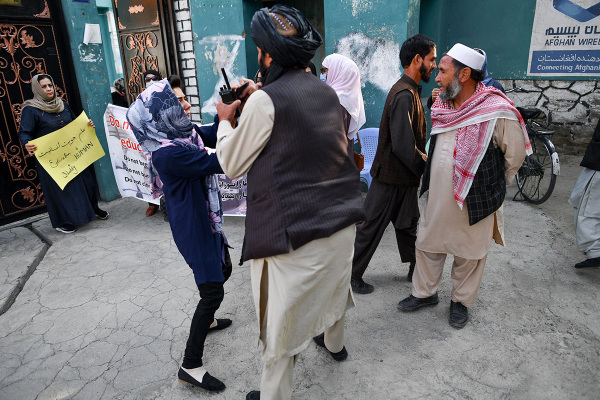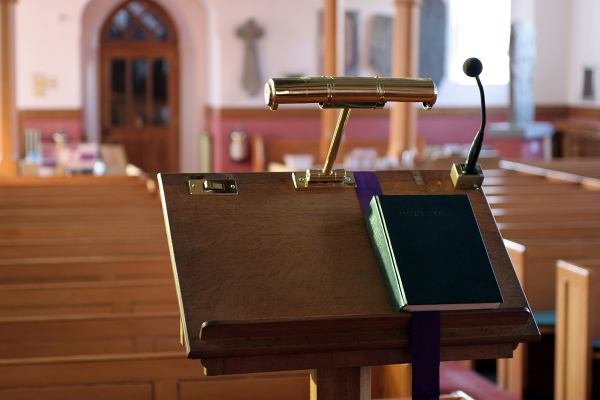Student wins payout from British university that suspended her over pro-life views

A midwifery student banned from her hospital placement at Nottingham University in England won an apology and settlement from the university.
On Nov. 25, the university apologized to Julia Rynkiewicz for suspending her because of her involvement with the pro-life Students for Life Society and paid her an undisclosed amount. For four months, the university subjected her to a fitness-to-practice investigation because she was a midwife who wanted babies to be born alive. The investigations stopped her studies and left her without access to student financial aid.
Rynkiewicz served as president of Nottingham’s Students for Life. The school said she was unable to be a midwife because of material available at the society’s stall and her public association with the society. Nottingham's school policy officially supports abortion.
"One of Julia’s lecturers lodged a complaint with the university's Midwifery School after interacting with her at the society’s Freshers Fair stall. Julia was suspended from her placement just three days later, before ultimately being cleared by a fitness to practice committee," Laurence Wilkinson, legal counsel at ADF International, wrote in The Spectator earlier this year about the circumstances that led up to her suspension.
“[Rynkiewicz] went through a period of great distress and anxiety. Getting this far into her university course and realizing it might not happen was a very distressing time for her. It was particularly difficult for her because at university, you’re encouraged to have an opinion. To be told she was going to be suspended for doing the thing she came to do was really tough,” Lois McLatchie, communications officer for Alliance Defending Freedom International, told The Christian Post.
Following the dismissal of the allegations against her, she filed a formal complaint with the university in January. Since then, she has negotiated with Nottingham University with the help of ADF International. McLatchie said Rynkiewicz’s victory isn’t a court victory, but it still sets a valuable example to other schools in the U.K.
“To have the university acknowledge they were wrong is great for her. It’s real justice,” McLatchie said. “This wasn’t a judicial decision. It was a formal complaint brought to the university. I’m very glad Nottingham realized they had done wrong in stifling Julia’s free speech. I hope they’re realizing wrong has been done and [that] it sets an example for other universities.”
In response to the university's apology, which Rynkiewicz accepted, she told The Telegraph: “The settlement demonstrates that the university’s treatment of me was wrong, and while I’m happy to move on, I hope this means that no other student will have to experience what I have.
“What happened to me risks creating a fear among students to discuss their values and beliefs, but university should be the place where you are invited to do just that,” she added.
A University of Nottingham spokesperson told The Christian Institute that the university supports the free discussion of beliefs and will consider changing its approach to cases like Rynkiewicz’s in the future.
The spokesperson added in a statement to the Telegraph that it fully supports students' access to abortion, but will work to be more open to other points of view, beliefs and perspectives.
Students at many U.K. universities live fearing that they will experience the same treatment Rynkiewicz faced, McLatchie said. A survey from the ADF International suggests that almost 40% of students fear that saying what they believe on campus will harm their future careers.
“What happened to Julia is not an isolated case. It’s a trend that we’re seeing. Speakers at the university will be de-platformed,” McLatchie said. “We don’t want to see a situation where self-censorship is stifling academia.”
To confront this threat to free speech, ADF International said it will send a letter to the U.K.'s Prime Minister Boris Johnson asking him to seek action on the issue.
“Despite acknowledgment of the problem by successive universities ministers and the Chair of the Equality and Human Rights Commission, student societies continue to be refused affiliation because their views are allegedly ‘not in line’ with that of the student body at large; academics continue to be frustrated in their attempts to undertake research on controversial topics; and speakers continue to be ‘no-platformed’ at the insistence of vocal minority groups claiming to be offended,” the letter reads.
People can sign the letter at the ADF International website.





















